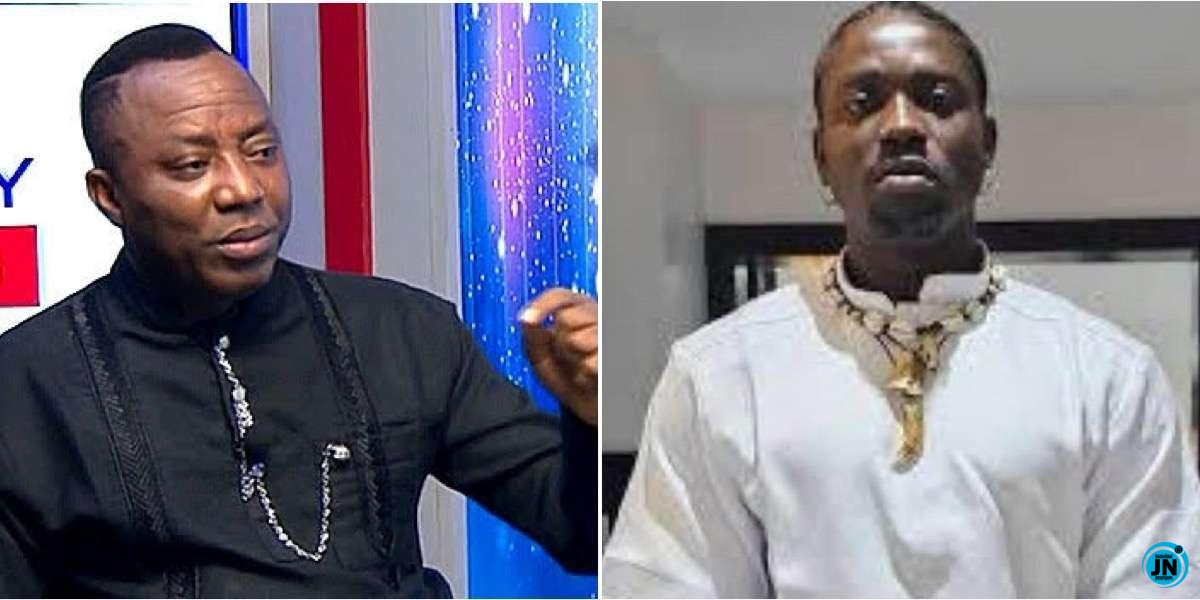
The 2019 presidential candidate and prominent human rights activist, Omoyele Sowore, has openly criticized the Economic and Financial Crimes Commission (EFCC) for what he describes as the unlawful arrest and detention of well-known social media figure, Martins Vincent Otse, popularly called VeryDarkMan (VDM).
Taking to his verified X (formerly Twitter) account, Sowore voiced deep concerns over what he claims is a targeted attempt by the EFCC to silence and intimidate VDM because of his unrelenting criticism and bold accusations against the commission. According to him, VeryDarkMan’s recent exposés on corruption within the EFCC and allegations against its top officials have made him a target of state suppression.
In Sowore’s words, “It has been established that the @officialEFCC unlawfully arrested and detained Martins Vincent Otse aka VDM, as a means to silence him for accusing the agency and its leaders of corruption and malfeasance.” He described the arrest as a direct assault on freedom of speech and a glaring misuse of public office.
He further stated that the EFCC was currently scrambling to find legal grounds on which to charge VDM in court, possibly within 24 hours, in what he sees as a hurried attempt to cover up the wrongful detention. “The @officialEFCC is currently exploring legal avenues to charge him in court, possibly tomorrow, in an attempt to legitimize their actions,” Sowore added.
Going deeper into the legality of the issue, Sowore argued that the EFCC does not have the jurisdiction to prosecute offenses like criminal defamation or libel, which he emphasized are civil matters. He wrote, “Nevertheless, it is essential to state unequivocally that the Economic and Financial Crimes Commission @officialEFCC does not possess the authority to prosecute individuals for criminal defamation, criminal libel, or cybercrime, as these are torts that are typically addressed through civil lawsuits.”
He concluded his statement by demanding the immediate and unconditional release of VeryDarkMan, insisting that the actions of the anti-graft agency were not only illegal but also a threat to democracy, civil liberties, and the rule of law in Nigeri
a.

